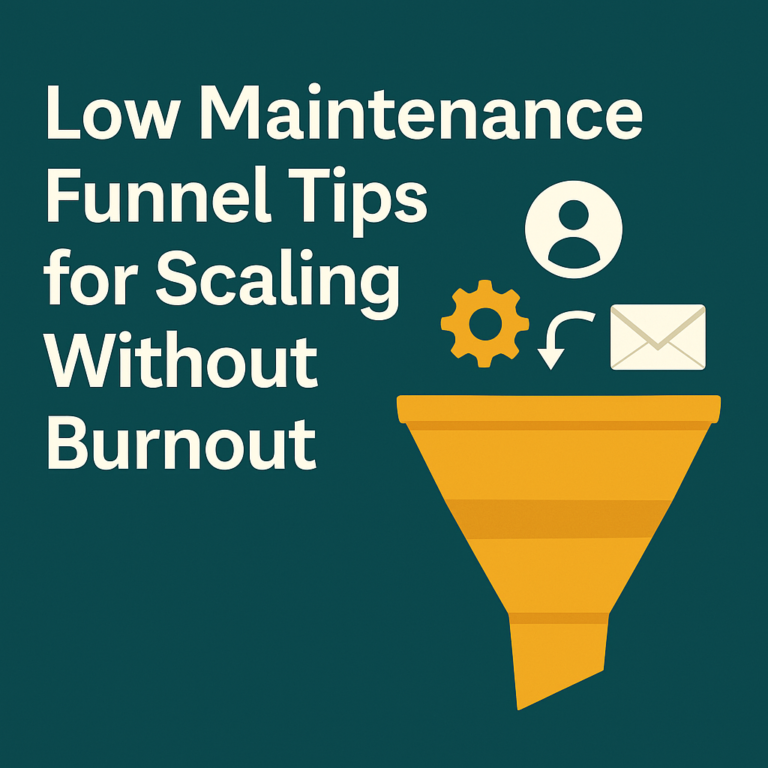We all know that starting and running a successful small business isn’t easy. Small businesses often face unique challenges when it comes to marketing their products or services. With limited resources and a tight budget, it can be difficult to attract new customers and retain existing ones. In the last article, I shared a few small business marketing strategies. Today, I share 5 more that you can employ to boost your business’s visibility, engage with their customers, and increase sales. These strategies have the potential to exponentially enhance your marketing efforts and drive long-term success. From email marketing and community involvement to SEO and paid advertising, these small businesses marketing strategies can help you stand out in a crowded marketplace and achieve their goals.
Utilize email marketing

Benefits of Email Marketing for Small Businesses
One of the key benefits of email marketing is that it allows small businesses to reach a large audience with a relatively low cost. Compared to traditional marketing channels such as print or TV ads, email marketing is much more affordable. This makes it a great option for businesses on a budget.
Another benefit of email marketing is that it is highly targeted. By building an email list of subscribers, businesses can segment their list based on factors such as demographics, interests, and past purchases. This allows businesses to tailor their messages to specific groups of customers. As a result, you increase the chances of engagement and conversions.
Email marketing is also measurable. This allows businesses to track the performance of their campaigns in real-time. Metrics such as open rates, click-through rates, and conversion rates can provide valuable insights into the effectiveness of your emails. It can also help you optimize your strategy for better results.
Effective Email Marketing Strategies
Here are a few tips you can follow to effectively utilize marketing for your business:
- Build your email list: Start by collecting email addresses from your customers and prospects. You can do this through various channels such as your website, social media, events, and in-store sign-ups. I’ve found landing pages and popups especially effective for capturing the attention of users. You may have even come across one on this site.
- Segment your list: Once you have a list of subscribers, segment them based on factors. Some factors might include demographics, interests, and past purchases. This will allow you to tailor your messages to specific groups of customers and increase the chances of engagement and conversions.
- Craft engaging content: Create engaging content that provides value to your subscribers. This can include promotional offers, product updates, industry news, or helpful tips and advice. One of my personal favorites is step-by-step guides and checklists.
- Personalize your emails: Use personalization techniques such as including the recipient’s name, past purchases, or location in your emails. This can help make your emails feel more personal and relevant to the recipient. It can also help keep your emails out of the spam box.
- Optimize for mobile: With more than half of all emails being opened on mobile devices, it’s crucial to optimize your emails for mobile devices. Use a responsive design that adapts to different screen sizes and keep your content short and concise.
- Track and optimize: Finally, use metrics such as open rates, click-through rates, and conversion rates to track the performance of your emails. Use this data to optimize your strategy for better results.
Above all, email marketing can be one of the most highly effective small businesses marketing strategies. It allows you to reach out to your customers and drive sales. By following the steps outlined in above, you can effectively utilize email marketing to build your brand and grow your business. Remember to keep your content engaging, personalize your emails, optimize for mobile, and track and optimize your campaigns for better results.
Get involved in your community

Benefits of community involvement for small business marketing.
- Increased brand recognition: Getting involved in your community can help you increase your brand recognition. Consider sponsoring a local event or organization. Doing this can get your business name and logo in front potential customers. In turn, you build awareness and recognition for your brand, which can lead to increased visibility and sales.
- Stronger customer relationships: Participating in community events and activities can help you build stronger relationships with your existing customers. Showing support for the same causes and organizations that are important to your customers demonstrates that you share their values and interests. This can help build loyalty and trust, which can lead to repeat business and positive word-of-mouth referrals.
- Positive public relations: When you get involved in your community, you also have the opportunity to generate positive public relations for your business. Consider supporting local charities, volunteering at community events, or sponsoring youth sports teams. This demonstrates your commitment to making a positive impact on your community. As a result, you build a positive reputation for your business and position you as a responsible corporate citizen.
- Cost-effective marketing: Community involvement can also be a cost-effective marketing strategy for small businesses. Traditional advertising and marketing methods can be expensive. In contrast, community involvement can be relatively low-cost. By investing your time and resources in community involvement, you can achieve a strong return on investment. For example, you may find increased brand recognition, customer loyalty, and positive public relations.
In conclusion, getting involved in your community can have many benefits for small business marketing. By increasing brand recognition, building stronger customer relationships, generating positive public relations, accessing new customers, and achieving cost-effective marketing, you can position your business for long-term success and growth. So why not start exploring ways to get involved in your community today?
Focus on customer service

Focusing on customer service can be one of the most effective marketing strategies for small businesses. By providing exceptional customer service, businesses can build customer loyalty, generate positive word-of-mouth referrals, and create a strong brand reputation. Here we explore the benefits of focusing on customer service and how it can be used as a marketing tool.
- Build customer loyalty: When customers have a positive experience with a business, they are more likely to become repeat customers. By focusing on customer service, businesses can create a loyal customer base that will continue to use their products or services over time. This is particularly important for small businesses, as repeat customers can make up a significant portion of their revenue.
- Generate positive word-of-mouth referrals: Customers are more likely to recommend a business to their friends and family if they have had a positive experience. By providing excellent customer service, businesses can generate positive word-of-mouth referrals. This can be a powerful marketing tool. Word-of-mouth referrals are particularly effective because they come from trusted sources. As a result, it can help businesses reach new customers who may not have otherwise heard of them.
- Create a strong brand reputation: A strong brand reputation is essential for any business. This is even more so for small businesses that are trying to establish themselves. By providing excellent customer service, businesses can create a positive reputation that will help them stand out from their competitors. A strong brand reputation can also help businesses attract new customers and retain existing ones.
- Increase customer satisfaction: Focusing on customer service can lead to increased customer satisfaction. When customers feel that their needs are being met, they are more likely to be satisfied with their experience. They are also more likely to recommend the business to others. Increased customer satisfaction can also lead to increased revenue. Remember, satisfied customers are more likely to make repeat purchases and spend more money over time.
- Improve online reviews: Online reviews are an important aspect of a business’s online presence. By providing excellent customer service, businesses can generate positive online reviews. This can help attract new customers and improve their search engine rankings. Positive online reviews can also help businesses build trust with potential customers who are researching their products or services.
Focusing on customer service can be a powerful marketing tool for small businesses. By building customer loyalty, generating positive word-of-mouth referrals, creating a strong brand reputation, increasing customer satisfaction, and improving online reviews, businesses can attract new customers and retain existing ones. Plus it’s one of the most a cost-effective small businesses marketing strategies. In addition, it helps your business stand out in a competitive market.
Invest in SEO

- Increased Organic Traffic: By optimizing your website for search engines, you can attract more organic traffic to your website. This means that people who are searching for products or services related to your business can easily find your website through search engines like Google. This increased traffic can lead to more potential customers and ultimately, increased sales.
- Cost-effective Marketing: Unlike traditional advertising methods like print or television ads, SEO is a cost-effective marketing strategy that can provide long-term benefits. Once you’ve optimized your website for search engines, you can continue to reap the benefits for months or even years without having to invest additional funds. This is one of my favorite aspects of SEO.
- Increased Brand Visibility: Ranking high in search engine results pages can significantly increase your brand visibility. People are more likely to trust businesses that appear at the top of search engine results pages. This can lead to more brand recognition and ultimately, increased sales.
- Competitive Advantage: Investing in SEO can give your business a competitive advantage over other businesses that aren’t optimizing their websites for search engines. By appearing at the top of search engine results pages, you can attract more potential customers than your competitors. Ultimately, you gain a larger market share.
- Improved User Experience: SEO not only improves your website’s visibility in search engine results pages, but it can also improve the user experience on your website. By optimizing your website for search engines, you’re also making it more user-friendly and easier to navigate. This can lead to increased time spent on your website and ultimately, increased sales.
Investing in SEO is crucial for small businesses looking to compete in today’s digital age. By optimizing your website for search engines, you can attract more organic traffic, increase brand visibility, gain a competitive advantage, and improve the user experience on your website. With these benefits, it’s no wonder that SEO is becoming one of the most important small businesses marketing strategies regardless of a company’s size.
Use paid advertising
Paid advertising can be a powerful tool for businesses looking to increase their visibility and drive traffic to their website or store. However, it can also be expensive. If not used effectively, it can lead to wasted resources and a poor return on investment. In this article, we will explore some tips and strategies for using paid advertising cost-effectively.
- Set a clear goal and target audience: Before launching any paid advertising campaign, it’s important to have a clear goal in mind. Are you looking to increase website traffic, generate leads, or boost sales? Once you have a goal, identify your target audience. Who are you trying to reach? What are their interests and demographics? By targeting your advertising to the right audience, you can maximize the effectiveness of your ad spend.
- Choose the right platform: There are many platforms available for paid advertising. Some examples are Google Ads, Facebook Ads, and LinkedIn Ads. Each platform has its strengths and weaknesses. That’s why it’s important to choose the one that aligns with your goals and target audience. For example, if you’re targeting a B2B audience, LinkedIn Ads may be more effective than Facebook Ads.
- Use targeted keywords and ad copy: When creating your ad, be sure to use targeted keywords and ad copy that aligns with your goal and target audience. Use language that speaks directly to your audience. Mostly importantly, include a clear call to action.
- Monitor and adjust your campaigns: One of the most important aspects of cost-effective paid advertising is monitoring and adjusting your campaigns. Set up tracking and analytics to measure the effectiveness of your ads. Then adjust your campaigns to optimize performance as needed. This may include adjusting your targeting, ad copy, or bid amounts.
- Consider retargeting: Retargeting is a powerful technique that involves showing ads to people who have already shown interest in your product or service. For example, if someone visits your website but doesn’t make a purchase, you can retarget them with ads on other websites they visit. This can be a highly effective way to drive conversions and maximize the ROI of your ad spend.
I can’t say paid advertising is one of my top small businesses marketing strategies. However, paid advertising can be a highly effective way to reach your target audience and drive traffic to your website or store. By setting clear goals and target audience, choosing the right platform, using targeted keywords and ad copy, monitoring and adjusting your campaigns, and considering retargeting, you can use paid advertising cost-effectively and achieve a positive return on investment.
Final Thoughts on Small Business Marketing Strategies
By implementing some of these small businesses marketing strategies, you can start to see real results in terms of increased visibility, customer engagement, and sales. Remember to track your results and adjust your strategies as needed to ensure long-term success for your business. In conclusion, small businesses can utilize various strategies to effectively market their products or services. Among these strategies are email marketing and community involvement.


